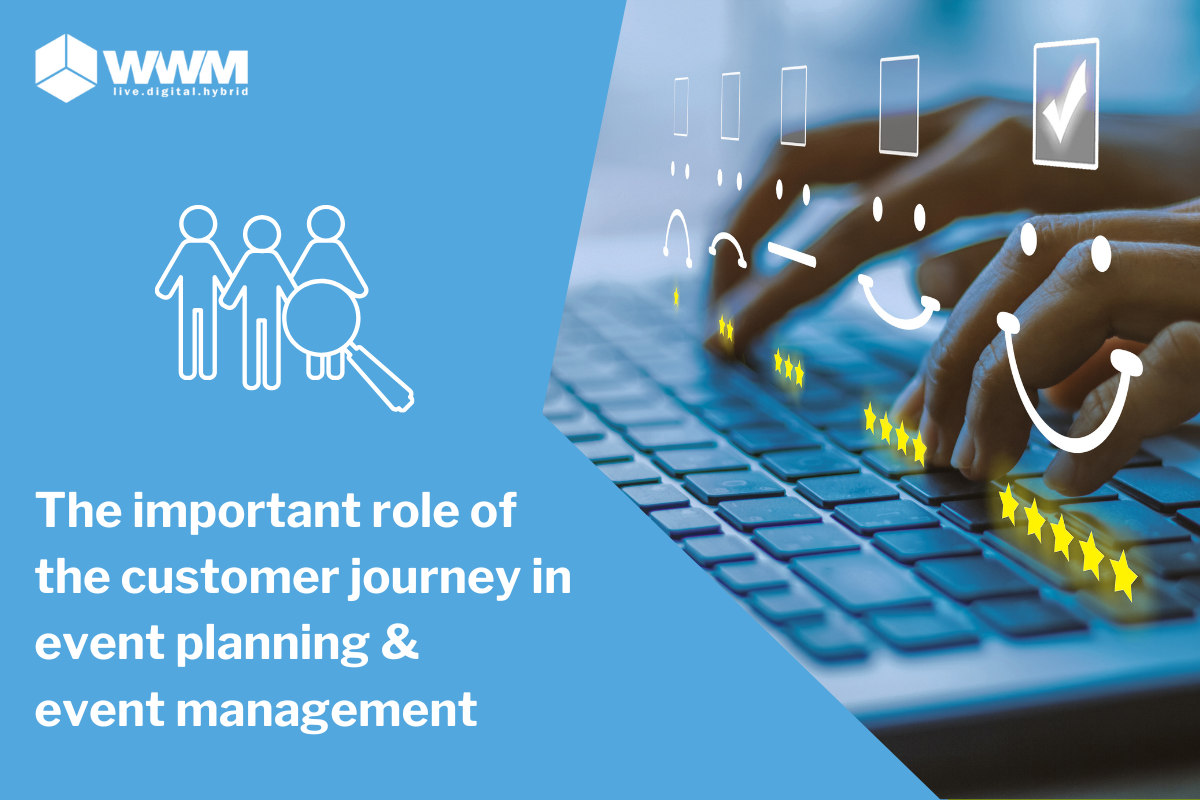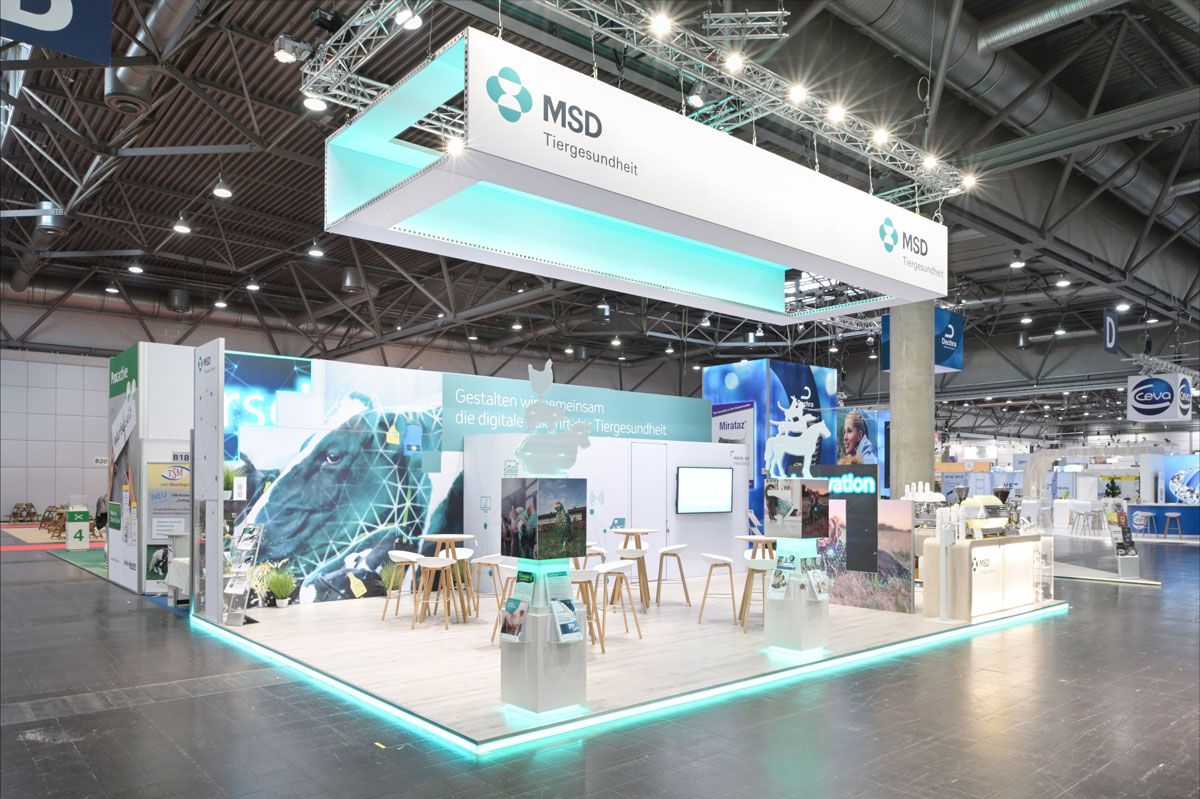The important role of the customer journey in event management
The customer journey plays a central role in event management. Planning and executing events is not just about putting together an impressive...

Purposefully planned events are an effective marketing tool that can give the company more reach. This is because events make it possible to address new target groups or to be remembered by existing target groups. Both up-and-coming and established companies can promote their own brand in this way and make their goods or services more tangible for customers. At the event, customers can get to know the company better, perhaps even try out new products for themselves and ask all their questions in a relaxed atmosphere. At the same time, such events are suitable for generating press attention.
Event marketing is made up of four different building blocks, each of which should be taken into account.
Information about the brand or product
The evocation of emotions
Allowing participants to actively take part in the event
Motivating participants to buy the product
All of these components are closely interlinked and cannot always be strictly separated from one another. For example, emotions can be generated by actively addressing participants and involving them in campaigns. The emotional connection this creates automatically motivates them to buy the product or use the service.
Successful event marketing depends on precise and organized planning. The first step is to set objectives. Because only when it is clearly defined what you want to achieve with the event can the planning be adapted accordingly. Possible event marketing objectives can be as follows:
Introducing and promoting a new product
Establishing your brand on the market
Recruit new business partners
You want to generate sales at the event
It is also important to define the right target group. Because only when it is clear who the event is aimed at can the concept be tailored accordingly.
Once the target group and objectives have been determined, a suitable location is required. Of course, this always depends on the type of event in question. To promote luxury items, a location such as a castle would be an excellent choice. However, a hip start-up that wants to build up a new customer base can also fall back on a simple hall. Hotels are also suitable for many events. In addition, trade fairs can often be combined with event marketing.
This part of the planning plays an important role in emotionalizing the event participants. Promotions or activities should therefore be planned on site that can be carried out by the participants, who will then develop a connection to the product or service.
For example, a wine tasting can be offered, a live cooking course or even a scavenger hunt can be organized. If the participants are given a giveaway at the end of the event, you will also be remembered for longer. Promotional gifts that can be used in everyday life, such as key rings, bags or USB sticks, are particularly suitable. These can easily be printed with the company logo beforehand.
Of course, all available resources should be used to successfully promote the event. After all, it would be a shame if no one showed up to the meticulously planned event. The best way to do this is through several channels.
Printed promotional materials are an excellent way of drawing customers' attention to the event in their everyday lives. They can be placed in strategic locations with high visitor traffic and have a decisive advantage over social media and email lists:
They appeal directly to multiple target groups and don't just reach people who are on the email list or who are active on popular social media networks. It is best to use various print media to draw attention to the event. So-called customer stoppers in the form of posters that can be put up, for example, can be placed in pedestrian zones, entrance areas and many other locations. They are flexible and can be easily folded up and stowed away again in the evening. Flyers, brochures and posters are also ideal for outdoor advertising.
Nowadays, you can hardly do without advertising on the Internet. You should therefore not limit yourself to just one advertising channel, but combine several. Social media is often the main pillar in the promotion of an event. The dominant giants in the industry, such as Facebook, Instagram and Twitter, are mandatory and can be used to quickly spread the word about the event in the form of a hashtag. The company blog is also a good advertising option. A post about the planned event can encourage one or two people to attend.
In addition to general advertising aimed at a large number of people, invitations can also be sent out. Email lists are ideal for this. For example, customers and business partners who already have a close relationship with the company can be reached. Invitations to journalists, influencers and bloggers are also possible. After the event, they may provide free advertising for the company by reporting on it.
After the event, it is important to determine its success. This involves checking to what extent the objectives were achieved and where there is still room for improvement. After all, such an event can swallow up large sums of money. This makes it all the more important to learn from previous events for the future. If necessary, an experienced service provider can also take over event controlling.
Targeted event marketing is a helpful tool for companies to advertise products and services, reach new target groups, establish contacts with business partners or generate sales as part of a sales event. Intensive planning that takes into account all the key components of event marketing is essential for success.

The customer journey plays a central role in event management. Planning and executing events is not just about putting together an impressive...

We have already heard a lot about virtual events and trade fairs in recent months. And the possibilities of a virtual trade fair are as individual as...

There was a time when a simple press release was enough to advertise your stand at the next trade fair. Today, a company has to be much more creative...